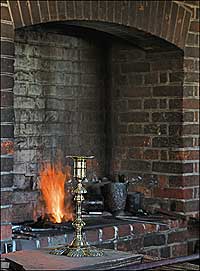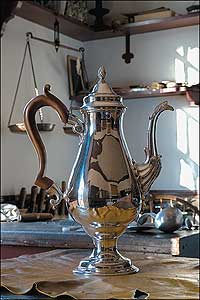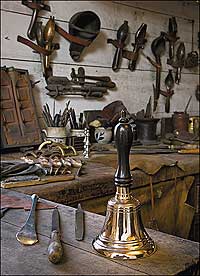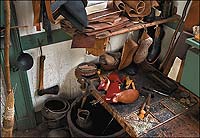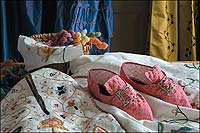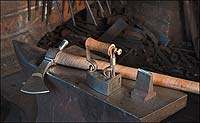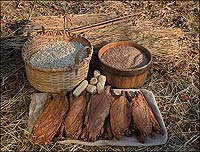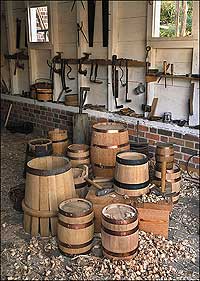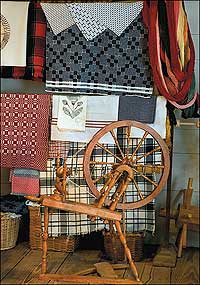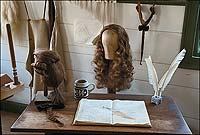Goods
by J. Hunter Barbour
We call them "goods" because we mean what the word means: things "having in adequate degree those properties which a thing of the kind ought to have." Good as far as it goes, that definition, taken from the Oxford English Dictionary, does not quite cover the wares produced by the tradespeople in Colonial Williamsburg's Historic Area. Their goods are more than adequate.
Working in eighteenth-century garb at restored or reconstructed colonial businesses and sites, masters, journeymen, and apprentices use period tools and techniques to reproduce by hand the goods of twenty-two historic trades. Silver services, woven cloth, wooden casks, iron tomahawks, gentlemen's boots, ladies' shoes, dining room candlesticks ...they turn out examples of the best technology had to offer two centuries and more ago, keeping their occupations alive, and demonstrating the role of technology in culture.
They supply what, in another definition of goods, the OED says "is expected or required (for a purpose expressed or implied); the real thing; the genuine article."
Colonial Williamsburg photographer Dave Doody set out to illustrate that with a series of images taken from the shops, fields, and forges where the men and women of trades are at work. As he shot, he noticed that goods made in one establishment are used by the next—the iron that sharpens pleats at the millinery was built by the blacksmiths who use a bucket from the cooper's to quench hot metal ... and so on. These pages are a sampling of Doody's work, of his goods.
—J. Hunter Barbour

